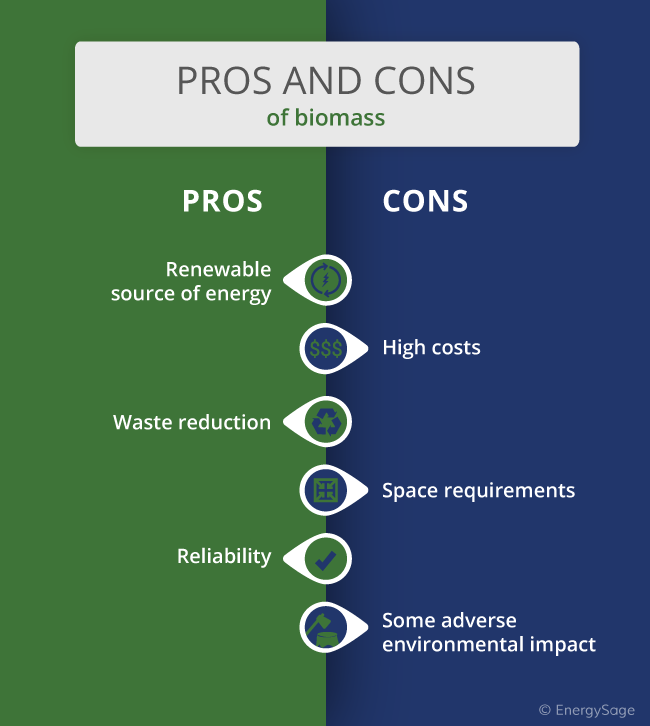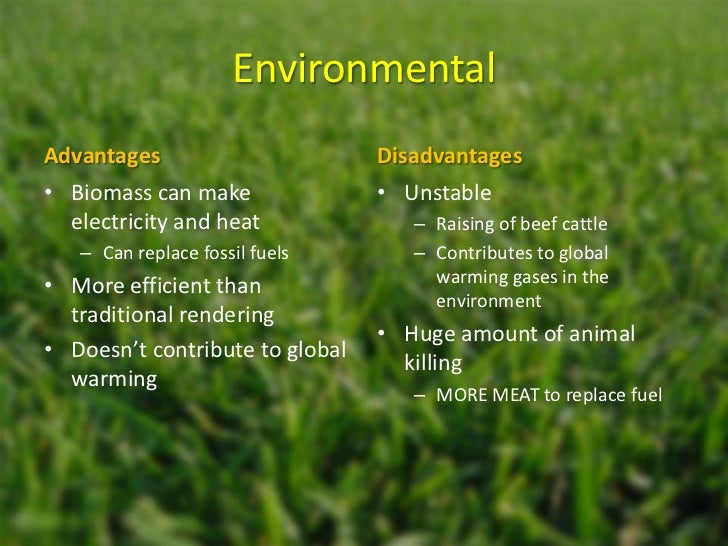Disadvantages Of Biomass Energy To The Environment

Almost all industries see extensive list including agriculture forestry colleges universities municipalities hotels resorts sports venues hospitals and correctional facilities produce waste that can be converted to heat and electricity.
Disadvantages of biomass energy to the environment. Disadvantages of biomass energy. Advantages and disadvantages of biomass. Biomass is a renewable source of energy derived from burning animal and plant waste. A september 2017 report by the u s.
Nature s cleaner gift also comes from the. This expense is constant as the planting and harvesting is a cycle process. While biomass energy offers a number of pros there are also some downsides to its use. Disadvantages of biomass energy.
The main uses of biomass energy today are for producing electricity through driving turbines and providing biofuel for transportation such as biodiesel and ethanol. In the list of disadvantages of biomass renewable energy resources the need for water is often unseen. Burning either fossil fuels or biomass releases carbon dioxide co2 a greenhouse gas however the plants that are the source of biomass for energy capture almost the same amount of co2 through photosynthesis. Dumping waste in landfills can be reduced to a major extent by increasing the number of biomass energy plants.
Although there are some disadvantages to using biomass energy the benefits outweigh them when compared to other energy sources such as fossil fuels. Though biomass energy is relatively cheap its processing to usable forms is quite expensive. Biomass energy has been used in various forms long before people really spoke about energy efficiency and renewable energy sources. In this way it also affects the economy of the country.
When looking at the advantages and disadvantages of biomass energy it s necessary to explore some of the negative aspects as well. For instance biomass energy requires more workers for the planting and harvesting of the crops resulting to additional expenses. Here we aim to provide an answer by looking at the advantages and disadvantages of biomass energy. Organic matter brings counts of sustainable solutions to overcome the energy crisis biomass or commonly known as bioenergy certainly helps reduce greenhouse gases to a noticeable extent biomass fuel being clean and a renewable source of energy is now proven to be outstanding the rest of the fossil fuels.
By helping in waste reduction biomass energy can also have a positive impact on the environment. The use of biomass as an energy resource is sure to become more prominent however the advantages and disadvantages and therefore the sustainability of biomass energy are largely dependent upon which type of biomass is being utilized. Transportation and resource gathering of biomass energy also needs to be counted in it. Using biomass for energy has positive and negative effects.
Required a lot of water. Generating energy from biomass materials can greatly help in waste management which has become a major issue in many countries.














































